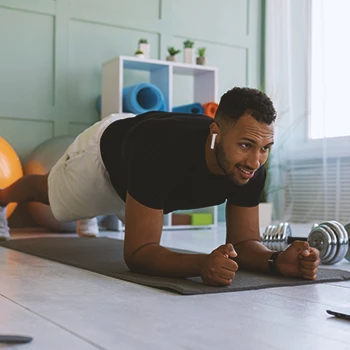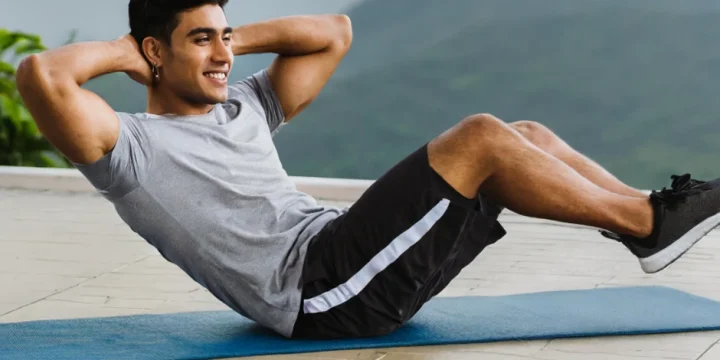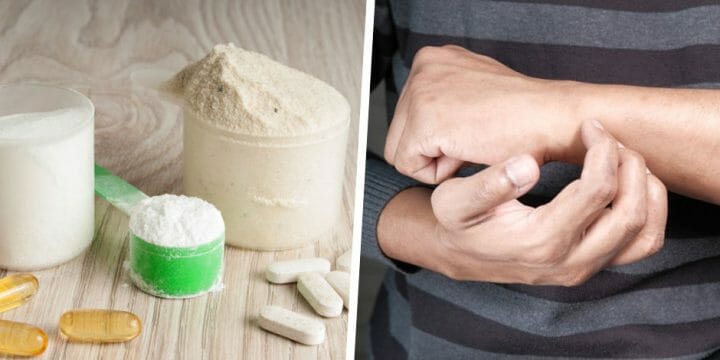One of the questions I often get from clients who want to do some extra training at home is how long those sessions should last.
It’s a tough question, and to find the ideal answer, I got a few of the best personal trainers that I know onto a Zoom call to see if we could come up with a general guideline.
We also did some research into scientific evidence of timing and intensity, as these two things can have a big impact on weight loss and toning.
Quick Summary
- To optimize workout results, adjust the duration between 30 and 60 minutes based on fitness goals like weight loss or cardiovascular improvement.
- For weight loss, aim for about 250 minutes of training per week, while five 30-minute cardio workouts weekly are recommended for heart health.
- Varying workout intensity can influence duration, high-intensity workouts can reduce exercise time by up to 50% while maintaining similar benefits as longer, lower-intensity sessions.
- In my view, effective workouts balance duration and intensity, tailored to individual fitness goals and capabilities, for sustainable and enjoyable fitness progress.
How Long Should Your Home Workout Last?

A home workout should last between 30 and 60 minutes, depending on your fitness levels and overall workout goals.
To lose 30 pounds in four months, intensify your workouts compared to training for cardiovascular and muscle fitness for a 5-mile race.
In the personal fitness industry, there are some generally accepted guidelines that we give to clients with different goals.From my experience as a fitness trainer, I've seen these guidelines effectively help clients achieve specific objectives, whether it's weight loss, muscle gain, or improved endurance, by tailoring their workout durations and intensities to their unique needs.
Aim for 250 minutes of training per week, spread over five 50-minute sessions, for effective and consistent weight loss [1].
The American Heart Association suggests five 30-minute cardio workouts weekly for heart health [2].
How Does Intensity Impact Your Timing?
You will burn a lot more calories at higher intensity levels, which will impact your timing [3]. And people can take advantage of that by shortening their exercise time and working their bodies harder.
Incorporating varied intensity levels, such as alternating between high-intensity interval training (HIIT) and steady-state cardio, can optimize calorie burn and prevent workout plateaus. This approach also helps in improving both anaerobic and aerobic fitness, offering a comprehensive workout regimen.
Alternatively, if you haven’t built up enough fitness and strength to push yourself to the limit for 20 minutes, then train for 40-60 minutes at a lower intensity.
It’s also generally a good idea to switch your intensity levels multiple times a week.
“You'll also want to switch up which types of workouts you do on those five days. If you can, aim for two or three days of cardio and spend the other two or three days on strength training.” - Mallory Creveling, ACE-CPT at Health.com
3 Tips for Maximizing Workout Time

Workout duration should be tailored to each session's goals, varying to effectively target different muscle groups and weight loss objectives.
1. Change The Intensity
Vary treadmill speed and distance to avoid fitness plateaus caused by your body adapting to the same routine [4].
Instead, set different goals for each training session. Let one be a low-intensity jog, and then the next one a full-power HIIT session. You could even start a session at a low pace and then speed things up for the last third.
2. Switch Around Your Sets
Switch up your workout sets and routines, like bench press setups or pull-up approaches, to avoid monotony and enhance effectiveness.
Swap out sets so that your muscles don’t get used to doing the same thing every time.
Related: Best Pull-Up Bar Exercises
3. Train At Different Times of the Day
This is a tip I often give clients who want to add a few workouts at home. If you normally head to the gym after work, then try to do a home workout first thing in the morning or on your lunch break.
FAQs
Is A 20-Minute Home Workout Enough?
Yes, a 20-minute home workout is enough if you dial up the intensity level enough, but it does depend on the type of workout and your goals.
If you push yourself in a high-intensity interval training routine, you could be pretty burned out after just 20 minutes.
The ideal workout routine should include cardio workouts with appropriate rest periods to effectively lose weight and promote muscle growth.
How Many Calories Does A 20-Minute Home Workout Burn?
At high-intensity levels, a 20-minute home workout can burn about 260 calories or 13 calories per minute [5].
This would need to involve things like jumping jacks, pull-ups, push-ups, and squats.
References:
- https://www.verywellfit.com/how-long-should-i-work-out-3495483
- https://www.heart.org/en/healthy-living/fitness/fitness-basics/aha-recs-for-physical-activity-in-adults
- https://www.latimes.com/health/la-he-fitness-exercise-intensity-20110905-story.html
- https://blog.myfitnesspal.com/5-culprits-behind-fitness-plateau/
About The Author
You May Also Like






